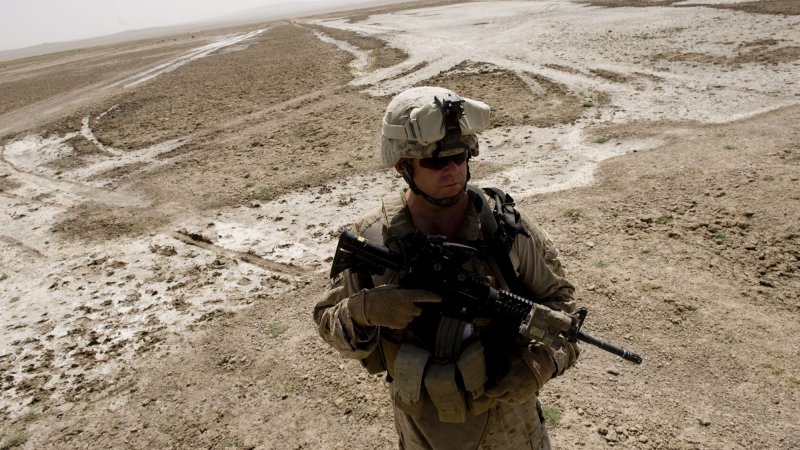An U.S. Marine participates in a security patrol in Gorgak district of Helmand province of Afghanistan. File/UPI/Hossein Fatemi |
License Photo
WASHINGTON, Dec. 6 (UPI) -- The Obama administration has quashed plans for a strong U.S. civilian presence in Afghanistan after U.S. troops leave, officials told The Washington Post.
Planners were told to cut personnel proposals at least 20 percent after the White House and top State Department officials concluded the United States wouldn't have enough resources to protect a large diplomatic compound in the Afghan capital Kabul, four consulates around the country and other civilian outposts, the officials said.
They also weren't sure they even really needed a strong civilian presence, the officials said.
Development projects once considered crucial are being divided into those considered sustainable and those that will not be continued.
Officials would not say what projects might end. The Post said they might include programs supporting women's rights, education, healthcare and infrastructure.
"As we saw in the Iraq exercise, you need to be very tough on the numbers going in," a senior administration official told the newspaper. "We need to have enough civilians to achieve the goals we've laid out" within "a finite amount of money we have to spend."
The U.S. civilian presence is now about 1,000 officials and thousands of contractors.
Among the administration's challenges are balancing fiscal constraints, diminished hopes for progress and national weariness with the Afghanistan effort against formal U.S. pledges of development support and moral and political commitments to Afghanistan, several senior officials told the newspaper.
The administration also has fears Afghanistan could again become a terrorist haven, the officials said.
Nearly 2,200 U.S. troops have died in the war in Afghanistan, which began Oct. 7, 2001, and has cost $590 billion.
Looming over the debate is making sure the administration doesn't inadvertently create conditions for anything similar to the Sept. 11 attack on the poorly defended U.S. diplomatic mission in Benghazi, Libya, the officials said.
That attack killed U.S. Ambassador Christopher Stevens and three other Americans.















